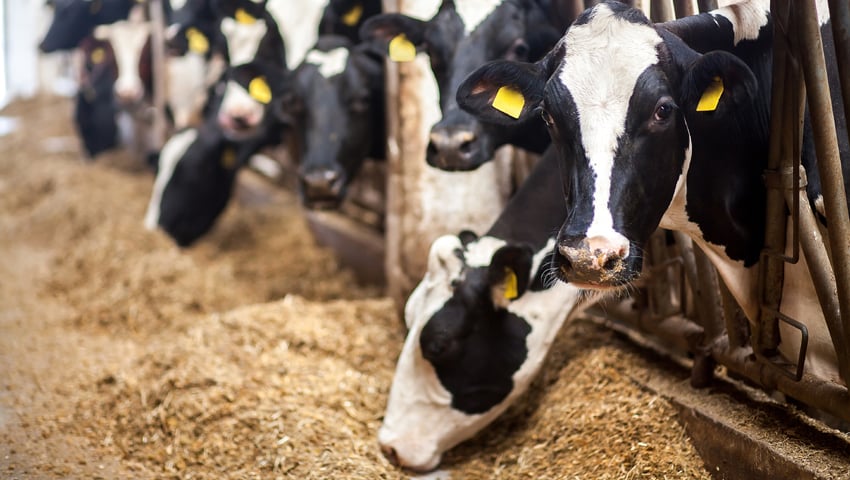An investigation into the use and adoption of modern precision livestock technologies on dairy farms secured a student a graduation prize.
BSc (Hons) Agriculture with Farm Business Management student Harry Parsons, from Laxey, on the Isle of Man, was one of five students named as the winners of a Morrisons Sustainability Prize at the 2024 Harper Adams Graduation Ceremony.
Each prize was awarded to a student for an Honours Research Project, or final year dissertation, which related to sustainability – with each recipient receiving £500.
Parsons’ project was titled, An evaluation of the Uptake and Utilisation of Precision Livestock Farming Technologies on British Dairy Farms.
He said, “It was a study looking into how well certain modern technologies, from robotic milking systems to cow activities sensors have been adopted on dairy farms, what factors may influence adoption and how those technologies are actually used by the farmers who have invested in them.
“Equally, the research was interested in the counter: for those farmers who have not invested in these technologies, what were their rationale?
“Was it that they simply don’t like the technology, that they’ve evaluated it and decided against it or something else entirely?”
One of the key drivers behind Parsons’ choice of research was what he saw as a ‘major disconnect’ between some of current research into precision livestock farming technologies, the companies behind these technologies, and the farmers who should be using them.
He said, “Research is indicating that these technologies, when used to their fullest, may be able to help solve the issues of labour on dairy farms, decrease farm climate impact and help improve farm efficiency – ultimately leading to bigger profits.
“In my eyes, these issues – labour shortages, environmental efficiency and financial performance – are the three biggest threats to the UK dairy industry, but despite research claims of how these technologies could help, there was a distinct lack of understanding of the extent to which these technologies had been adopted, and how they were actually being used on farms.
“My research aimed to plug that gap, identifying the adoption rates of these technologies on British farms in 2024, the ways they are actually used – and why certain farms are not adopting them.
“With this understanding, we can then truly understand if farms and the wider dairy industry are experiencing the benefits claimed in the research.”
After completing and submitting his dissertation, Parsons was delighted to learn it had been chosen as one of this year’s prize winners.
Describing how he felt, he said, “Honestly, a mixture of surprised, happy and grateful!
“Despite believing in the environmental merit of the dissertation, I wasn’t convinced it would win – as the piece’s insight into farm sustainability is less obvious than a piece of work whose title directly mentions carbon emissions, for example.
“It’s a brilliant feeling that the work is getting recognition given the huge number of hours I poured into it!”
